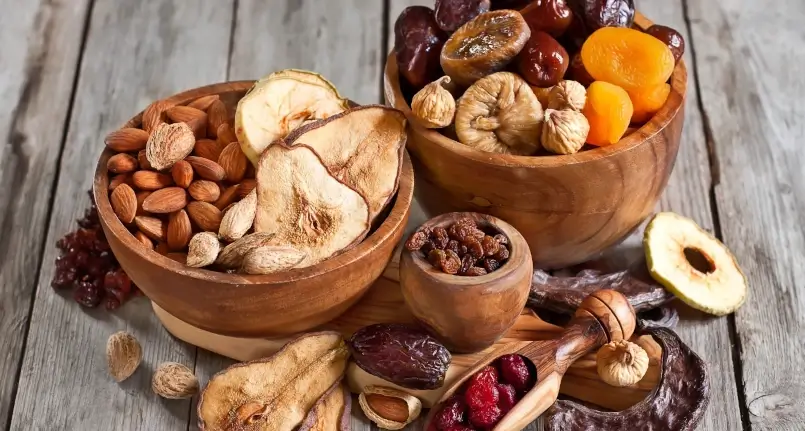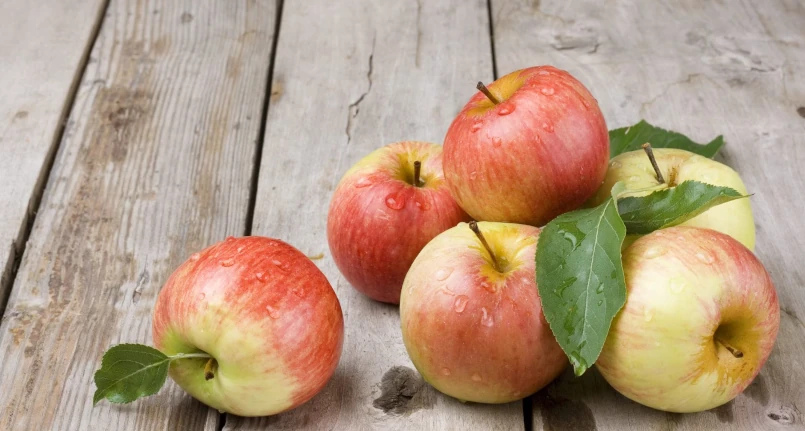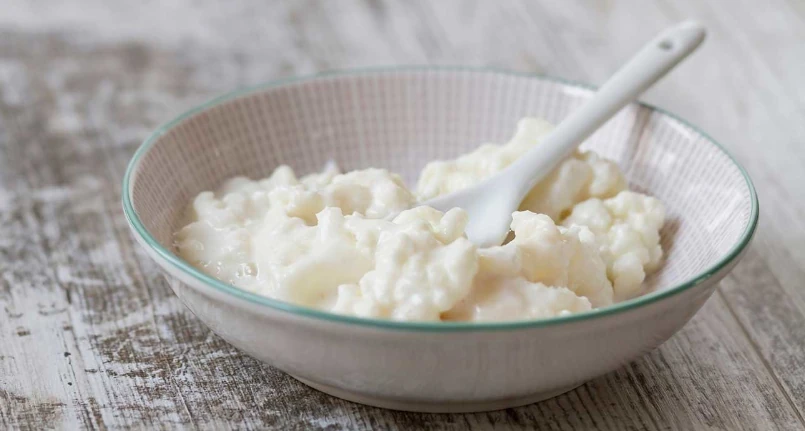Introduction
Dehydrated fruit: beneficial properties
Dehydrated dried fruit has various beneficial properties; certain nutrients are the same as fresh fruit and are more concentrated, while others are reduced).
It is a very nutritious food , rich in fiber, vitamins and minerals , which often triple those present in fresh fruit. Thus, one serving can provide a large percentage of the recommended daily intake of many vitamins and minerals , such as folate. However, it must be said that various vitamins are lost during the drying process: for example, the vitamin C content is significantly reduced when fruit is dried .
Dehydrated dried fruit is also a powerhouse of antioxidants , especially polyphenols associated with health benefits such as improved blood flow , better digestive health , reduced oxidative damage .
Sultana raisins: properties
Raisins , or sultanas, are among the most consumed dehydrated fruits . High in fiber , potassium , it has a low to medium glycemic index and a low insulin index —that means raisins shouldn’t cause blood sugar spikes or high insulin levels after meals. Some beneficial properties of raisin consumption include:
- Lowers blood pressure
- Improve blood sugar and insulin levels
- Counteracts inflammatory states
- Reduces blood cholesterol
- It leads to a greater feeling of prolonged satiety
- It helps reduce the risk of developing type 2 diabetes and heart disease
Dried plums: natural laxatives
Prunes are high in fiber , potassium, beta-carotene ( vitamin A ) and vitamin K , and are known for their natural laxative effects . This is caused by their high fiber content and a sugar alcohol called sorbitol , which occurs naturally in some fruits. It has been shown that eating prunes helps improve intestinal transit , counteract constipation and constipation and improve stool consistency. Being a great source of antioxidants, prunes can inhibit the oxidation of LDL cholesterol and help prevent heart disease and cancer . Consuming dried plums can be a valid aid in contrasting the painful manifestations of osteoporosis , due to a mineral called boron of which they are rich.
Dates: rich in antioxidants and useful for pregnancy
Dates are another fruit rich in fiber, potassium, iron , and several plant compounds. Of all nuts, they are one of the richest sources of antioxidants and help reduce oxidative damage in the body. Dates, like sultanas , have a low glycemic index , which results in not causing major spikes in blood sugar levels. The consumption of dates is particularly indicated in pregnancy, especially during the last few weeks as it can help facilitate cervical dilatation , as well as reduce the need for induced labor .
Dehydrated or candied fruit? Read the labels
To make dried fruit even sweeter and more inviting, it is often covered with added sugar or syrup before being dried, and then “candied”. Added sugar has been repeatedly shown to have detrimental health effects , increasing the risk of obesity, heart disease and even cancer. It is always better to prefer the consumption of natural dried fruit without added sugar, and it is therefore important to read the ingredients and nutritional information on the package.
Dehydrated fruit: sugars and calories
Fruits tend to contain significant amounts of natural sugars . Since the water is removed through the drying process, the sugars – glucose and fructose – and therefore the calories remain concentrated. Below is a list of the quantity of sugar contained in individual dehydrated fruits:
- Raisins: 59%.
- Dates: 64–66%.
- Prunes: 38%.
- Apricots: 53%.
- Figs: 48%.
Eat them in moderation as most of the sugar they contain is fructose, the excessive consumption of which can cause negative health effects, such as an increased risk of gaining weight , the onset of type 2 diabetes and heart disease. Dehydrated dried fruit, being rich in fiber and antioxidants, is beneficial for the body, however, it should be consumed occasionally and in small portions. It can be a much healthier and more nutritious snack than industrial snacks or junk food such as chips and sweets, but the modest sugar and carbohydrate content must be taken into consideration.
Here are the tips for storing dried fruit and thus avoiding food waste .




